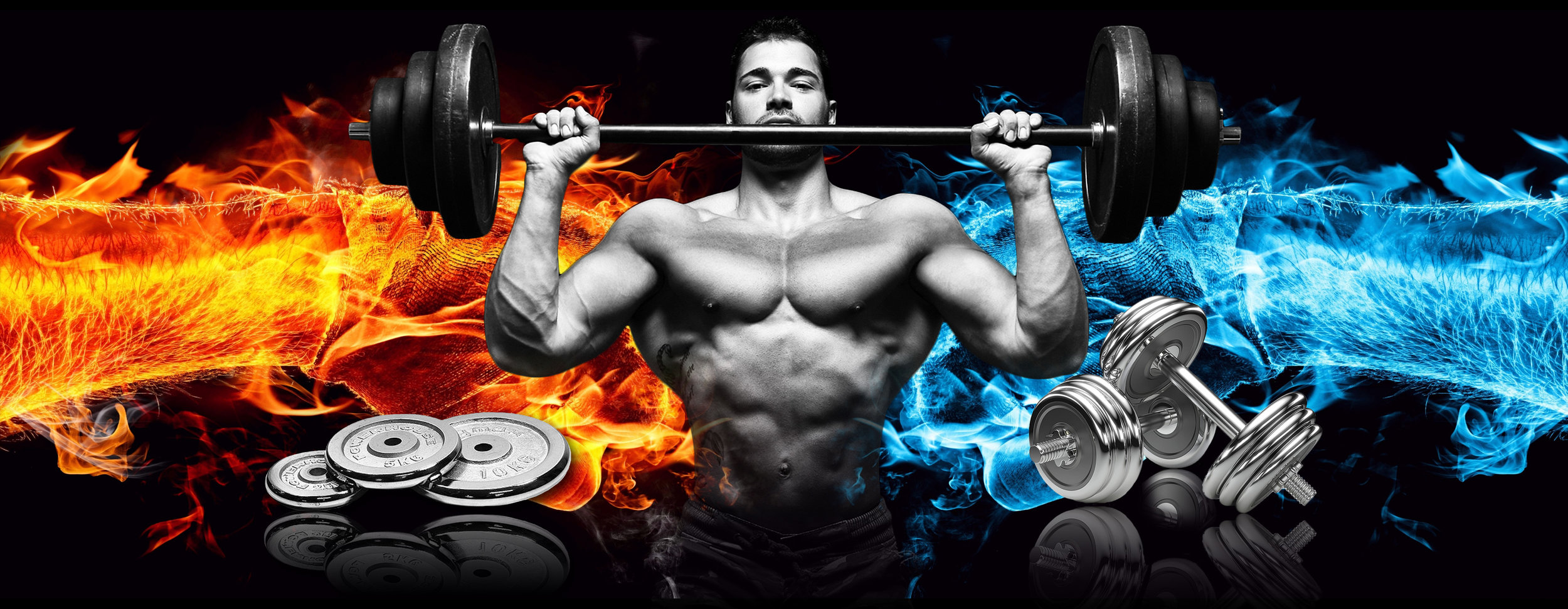HMB for Muscle Mass, Strength, Athletic Performance, and Body Composition
HMB has been on the supplement market for over a decade. HMB is short for beta-hydroxy beta-methylbutyrate. It has been embraced by the athletic industry as one of the most effective muscle building and natural anabolic supplements in the market. HMB is derived from the amino acid leucine, which is one of the all important branched chain amino acids. Although HMB is always marketed as a supplement, it can be found in small amounts and in its natural form from foods such as catfish, grapefruit, and alfalfa. HMB's primary benefits include: increased protein synthesis, fat burning capabilities, and helps maintain a highly anabolic environment in the body in conjunction with an exercise routine.
One of the more credible aspects of HMB is the amount of research that has been performed on it. Although there are many studies there are several of key importance. In a study performed by Someren et al (1), the physiological markers of exercise induced muscle damage and muscle breakdown were measured before and after an intense bout of eccentric resistance training. It appears from the study that those who supplemented with HMB for 14 days had far less muscle damage and delayed onset muscle soreness (DOMS). This study also showed that HMB had a significant role in decreasing chemical and biochemical factors of muscle breakdown that commonly accompany an intense resistance exercise training. Simply put, this study showed HMB's role in aiding recovery and enhancing the process of muscle building.
In another study by Panton et al (2), thirty-nine subjects, both men and women were randomly placed into either a placebo or HMB group while undergoing a four week resistance training program. The results after the four week trial indicated that the subjects who combined HMB with the resistance training program had far greater increases in strength, muscle mass, decreases in body fat, and reductions of muscle damage compared to the placebo group. Another interesting note is that, upper body strength increased far more in the HMB group than their lower body strength, which is uncharacteristic for studies involving resistance training studies in which lower body usually demonstrates the greatest gains.
In one of the first studies involving HMB performed by Nissen et al (3), HMB was tested for its so called muscle building properties. There were three groups in this study: a placebo group, an HMB group that consumed 1.5 grams of HMB a day, and another HMB group that consumed 3 grams per day. The results were as follows. Weight lifted was increased by HMB supplementation when compared with the placebo group during each week of the study, fat-free mass was significantly increased in HMB-supplemented subjects at 2 and 4-6 wk of the study, and both HMB groups experienced far less exercise induced muscle damage. This in turn resulted in larger gains in muscle function associated with resistance training. Although 1.5 grams did have significant improvements compared to the placebo group, those that supplemented with 3 grams a day had even greater gains than either group.
As with most supplements, scientists are always striving to find the most effective method or combination for a specific product. Most recently, theories pertaining to the coupling of HMB and creatine have led to several important studies combining the two supplements and assessing the results. Jowko et al (4) did just that by looking at the combined results of both HMB and creatine. In this study it appears that HMB is at its most potent form when coupled with creatine. In fact, the results were quite outstanding. In this double-blind, 3-wk study, there were four groups for a total of 40 subjects. The four groups were randomly assigned to either a placebo, creatine, HMB, or a combined HMB and creatine group. Over 3 weeks, all subjects gained lean body mass, which was assessed by bioelectrical impedance analysis. The creatine, HMB, and combined group gained 0.92, 0.39, and 1.54 kg, respectively, of lean body mass over the placebo group. Across all exercises, HMB, CR, and CR/HMB supplementation caused accumulative strength increases of 37.5, 39.1, and 51.9 kg, respectively, above the placebo group. As can be seen from the above findings, supplementation with both HMB and creatine proved to be the most effective.
There have been at least ten different studies performed on HMB supplementation in regards to strength and muscle gains associated with resistance training. In all of these studies, there is conclusive and empirical evidence that supports HMB supplementation for increasing strength and muscle mass when combined with resistance training. In many of these studies, three weeks of HMB supplementation at three grams a day resulted in nearly three pounds of additional fat free mass gained which is equivalent to one pound of muscle gained per week. Strength increases of nearly 1.5% per week were also reported in many of these studies (5). The combined results from all these studies have also indicated that HMB has a positive effect regardless of training status. In other words, advanced athletes or previously untrained individuals will reap similar benefits from the supplementation of HMB, especially when combined with resistance training.
Summary and Recommendation
All in all, athletes looking to increase both muscular hypertrophy and strength while avoiding overtraining and delayed onset muscle soreness (DOMS) should seriously consider supplementing with HMB. Individuals looking to lose body fat can also take advantage of the results from HMB. It is quite clear from scientific research that HMB is undoubtedly a performance enhancing supplement that should be considered by most high performance athletes.
It appears that the most effective and non-toxic dose of HMB when combined with regular exercise seems to be anywhere from 3-5 grams. There are no known side effects or toxicity as long as HMB is supplemented correctly with its proper dosage. HMB may also be in its most potent state when combined with creatine and other amino acids such as arginine and glutamine. HMB should be taken with food, either before training, near bedtime, or both.
According to consumerlab.com and other valid sources, some of the best HMB products include: SciFit HMB, Eclipse Triple Potency HMB, EAS HMB, Optimum Nutrition Mega-Potency HMB, MHP A-Bomb, PrimaForce HMB Fuel, Beverly International Muscle Synergy, and Twinlab HMB.
References
1. Someren KA, Edwards AJ, Howatson G. Supplementation with beta-hydroxy-beta-methylbutyrate (HMB) and alpha-ketoisocaproic acid (KIC) reduces signs and symptoms of exercise-induced muscle damage in man. Int J Sport Nutr Exerc Metab. 2005 Aug; 15(4): 413-24.
2. Panton LB, Rathmacher JA, Baier S, Nissen S. Nutritional supplementation of the leucine metabolite beta-hydroxy-beta-methylbutyrate (hmb) during resistance training. Nutrition. 2000 Sep; 16(9): 734-9.
3. Nissen S, Sharp R, Ray M, Rathmacher JA, Rice D, Fuller JC Jr, Connelly AS, Abumrad N. Effect of leucine metabolite beta-hydroxy-beta-methylbutyrate on muscle metabolism during resistance-exercise training. J Appl Physiol. 1996 Nov;81(5): 2095-104.
4. Jowko E, Ostaszewski P, Jank M, Sacharuk J, Zieniewicz A, Wilczak J, Nissen S. Creatine and beta-hydroxy-beta-methylbutyrate (HMB) additively increase lean body mass and muscle strength during a weight-training program. Nutrition. 2001 Jul-Aug;17(7-8):558-66.
5. Nissen S, Wolinsky I, Driskell J, Turpin A, Beer C, Feliciano J. HMB. Nutritional Ergogenic Aids. 2004; 152-154.






















